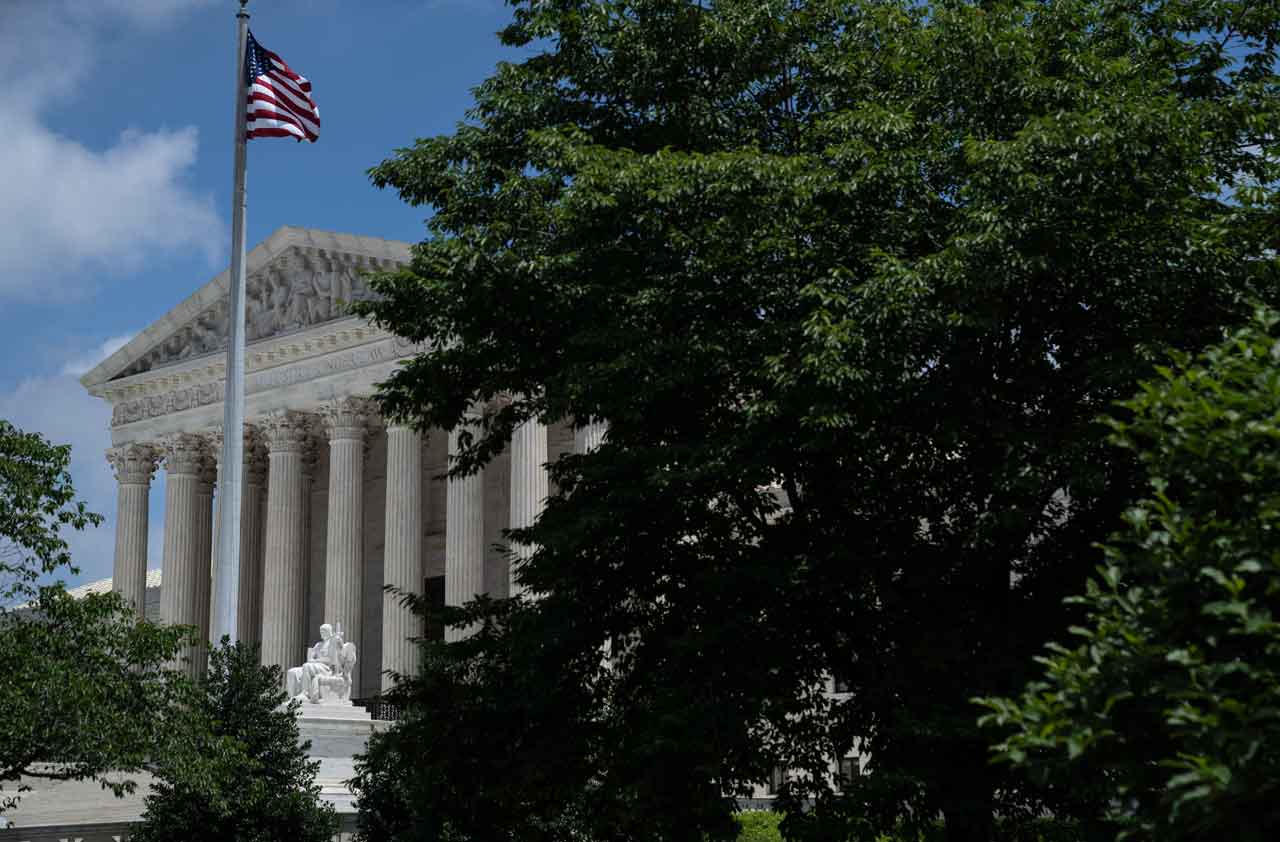Gingrich's Economic Plan Political, Not Practical
His plan for a corporate moon base isn't the only far-out policy touted by Newt Gingrich.

Profit and prosper with the best of Kiplinger's advice on investing, taxes, retirement, personal finance and much more. Delivered daily. Enter your email in the box and click Sign Me Up.
You are now subscribed
Your newsletter sign-up was successful
Want to add more newsletters?

Delivered daily
Kiplinger Today
Profit and prosper with the best of Kiplinger's advice on investing, taxes, retirement, personal finance and much more delivered daily. Smart money moves start here.

Sent five days a week
Kiplinger A Step Ahead
Get practical help to make better financial decisions in your everyday life, from spending to savings on top deals.

Delivered daily
Kiplinger Closing Bell
Get today's biggest financial and investing headlines delivered to your inbox every day the U.S. stock market is open.

Sent twice a week
Kiplinger Adviser Intel
Financial pros across the country share best practices and fresh tactics to preserve and grow your wealth.

Delivered weekly
Kiplinger Tax Tips
Trim your federal and state tax bills with practical tax-planning and tax-cutting strategies.

Sent twice a week
Kiplinger Retirement Tips
Your twice-a-week guide to planning and enjoying a financially secure and richly rewarding retirement

Sent bimonthly.
Kiplinger Adviser Angle
Insights for advisers, wealth managers and other financial professionals.

Sent twice a week
Kiplinger Investing Weekly
Your twice-a-week roundup of promising stocks, funds, companies and industries you should consider, ones you should avoid, and why.

Sent weekly for six weeks
Kiplinger Invest for Retirement
Your step-by-step six-part series on how to invest for retirement, from devising a successful strategy to exactly which investments to choose.
How do Newt Gingrich and Mitt Romney stack up against each other on the economy? Though it's the top issue in the presidential race, how each candidate proposes to deal with the economy is getting little attention in the two-man contest for the GOP nomination.
SEE ALSO: Is It Still "The Economy, Stupid?"
The crucial difference between Romney and Gingrich isn't ideological. Both take a conservative approach. But where Romney's economic plan is practical and realistic, perhaps even a little boring, Gingrich's plan is largely impractical and in some cases at odds with mainstream conservatism. More often than not, it seems framed for tactical political advantage.
From just $107.88 $24.99 for Kiplinger Personal Finance
Become a smarter, better informed investor. Subscribe from just $107.88 $24.99, plus get up to 4 Special Issues

Sign up for Kiplinger’s Free Newsletters
Profit and prosper with the best of expert advice on investing, taxes, retirement, personal finance and more - straight to your e-mail.
Profit and prosper with the best of expert advice - straight to your e-mail.
That makes it especially difficult to predict what the mercurial Gingrich would do as president. Winning candidates make a slew of campaign promises that they don't deliver on once in office. But they're usually held accountable on the big promises. George W. Bush promised a trillion dollar tax cut, for example. Barack Obama promised to reform health care and bring the troops home from Iraq. Both men delivered.
Gingrich's economic promises are all big. Because they're so big and so numerous, many Republicans worry that they add up to a fantasy that can't be fulfilled.
First and foremost, the former speaker of the House says he will cut taxes even more than antitax groups urge and simultaneously balance the budget -- without painful budget cutting. Handily, this puts him to the right of his rivals.
After Romney proposed reducing the corporate income tax rate from 35% to 25% and Texas Gov. Rick Perry endorsed a cut to 20%, Gingrich opted for a reduction to 12.5% -- exactly half of the Romney rate. Romney, perhaps sensitive about his great wealth, advocates eliminating capital gains taxes for those earning less than $200,000 a year; Gingrich would eliminate them entirely, bestowing a huge windfall on taxpayers, particularly the very wealthy. And Gingrich wants a 15% flat income tax, without ending the popular deduction for mortgage interest or many other individual and business write-offs and deductions.
According to the nonpartisan Tax Policy Center, Romney's tax proposals would add $180 billion to the federal deficit in 2015. Gingrich's, $850 billion -- nearly one-fourth of Uncle Sam's total projected revenue that year. Gingrich's vague plans to cut spending wouldn't come close to offsetting this amount. Gingrich, however, rejects this cost estimate, embracing instead the supply-side argument, espoused by economist Arthur Laffer, that tax cuts can more than pay for themselves through higher revenue from added growth. The problem is that conservatives haven't taken Laffer's supply-side ideas seriously since the early Reagan years.
In fact, Gingrich insists that he doesn't need economic advice. With characteristic confidence, the candidate explained in October that he wouldn't rely on economic advisers as president: "The best economic adviser I'll have is me." Laffer, who is a Gingrich supporter, is not a formal adviser.
As in other aspects of his campaign, Gingrich's approach to his economic platform is improvisational, with a heavy emphasis on policies designed to achieve a tactical political advantage. Some aim to highlight a contrast with Romney. Others seem intended to appeal to specific blocs of conservatives. For example, libertarians might find the idea of a corporate-sponsored moon base attractive, even if it sounds silly to space experts. And some conservatives love Gingrich's idea of putting needy young teens to work, purportedly both to help cut school costs and to impart a stronger work ethic to the poor.
Some Gingrich causes seem targeted at Texas Rep. Ron Paul's supporters, a considerable prize for someone if Paul abandons his campaign. Gingrich advocates radical changes to the operation of the Federal Reserve -- not too far off Paul's aim of abolishing the Fed and returning America to fixed exchange rates for the dollar, backed by gold reserves. Gingrich, in fact, says that he would appoint a task force to consider a gold standard, as, he points out, President Reagan did in 1981.
Now, as then, the idea appears to be more of a political maneuver than a serious policy consideration. As a candidate, Reagan wooed supporters of fixed exchange rates who were unhappy with what they viewed as an improper devaluation of the dollar intended to help exporters. But as president, Reagan pushed through the 1985 Plaza Accord, a huge devaluation of the dollar, and shelved the gold standard debate. Despite the yearnings of goldbugs, nearly all serious economists say that a gold standard is probably impossible to achieve and would be ruinous for the U.S. economy, in part because it would limit economic growth to the pace of gold mining in South Africa and Russia.
Gingrich's tendency to take his policies a step or two beyond those of his rivals for the GOP nomination give some in his party pause. Where Romney and other candidates criticize Fed Chairman Ben Bernanke and say they wouldn't reappoint him in 2014, Gingrich promises to fire the chairman before then -- an unprecedented move that would probably be illegal.
Where Romney and others carp at aspects of the Dodd-Frank law revamping financial regulation, Gingrich promises to repeal it -- the only major candidate to do so. He also wants to scuttle Sarbanes-Oxley, the 2002 law that established new disclosure rules for corporations. Even the conservative, pro-business U.S. Chamber of Commerce thinks that goes too far. Romney wants to exempt only smaller firms from Sarbanes-Oxley. Gingrich says abolish the Environmental Protection Agency. Romney says give businesses more time to transition to new environmental rules.
Of course, no candidate's economic plan is devoid of politically motivated wishful thinking. Romney, for example, promises to maintain current low tax rates and to get a handle on runaway federal debt -- mutually exclusive goals. But Romney's famously wonky 59-point economic plan is full of stuff that is at least doable, if unimaginative and less far-reaching than many in his party desire.
For anyone who looks closely at Gingrich's economic proposals, the approach is familiar. In 1994, Gingrich galvanized conservatives with his Contract with America. But very little of the contract was enacted or led to significant change. Again today, he is using a far-reaching agenda to dazzle conservatives. In the next few weeks, they'll have to decide whether Gingrich's many proposals are for real or merely a political mirage.
Profit and prosper with the best of Kiplinger's advice on investing, taxes, retirement, personal finance and much more. Delivered daily. Enter your email in the box and click Sign Me Up.

-
 How Much It Costs to Host a Super Bowl Party in 2026
How Much It Costs to Host a Super Bowl Party in 2026Hosting a Super Bowl party in 2026 could cost you. Here's a breakdown of food, drink and entertainment costs — plus ways to save.
-
 3 Reasons to Use a 5-Year CD As You Approach Retirement
3 Reasons to Use a 5-Year CD As You Approach RetirementA five-year CD can help you reach other milestones as you approach retirement.
-
 Your Adult Kids Are Doing Fine. Is It Time To Spend Some of Their Inheritance?
Your Adult Kids Are Doing Fine. Is It Time To Spend Some of Their Inheritance?If your kids are successful, do they need an inheritance? Ask yourself these four questions before passing down another dollar.
-
 U.S. Manufacturing Is Already Ailing from Coronavirus
U.S. Manufacturing Is Already Ailing from CoronavirusEconomic Forecasts Supplies are hard to come by, and in the longer-term demand may be at risk.
-
 Will You Have to Pay More Sales Taxes on Your Online Purchases?
Will You Have to Pay More Sales Taxes on Your Online Purchases?business One thing’s for sure: Consumers who live in one of the five states without a sales tax won’t be affected by the Supreme Court’s ruling.
-
 What to Expect From the New Fed Chief
What to Expect From the New Fed ChiefEconomic Forecasts By and large, Jerome Powell will move along the path set by his predecessor.
-
 How a Border Tax Would Affect You
How a Border Tax Would Affect YouBusiness Costs & Regulation A plan to limit imports could raise prices but also create more jobs.
-
 A Housing Shortage Looms: Builders Can’t Keep Up
A Housing Shortage Looms: Builders Can’t Keep Upbusiness Starter homes especially are becoming scarce.
-
 Help Wanted in America: Skilled Workers
Help Wanted in America: Skilled WorkersTechnology In an ever-more-competitive job market, technology increases the need for skilled workers.
-
 The Unintended Consequences of a Boost in Overtime Pay
The Unintended Consequences of a Boost in Overtime PayBusiness Costs & Regulation New rules mean millions more employees will be overtime-eligible. But will employers find workarounds?
-
 U.S. Economy to Perk Up in Second Half
U.S. Economy to Perk Up in Second HalfEconomic Forecasts Consumers are recovering from a swoon induced by a wobbly stock market. But energy, other sectors will continue to struggle.